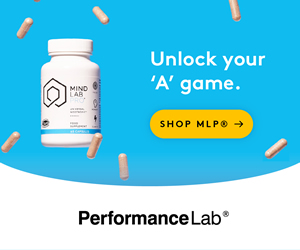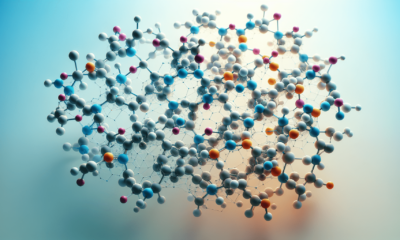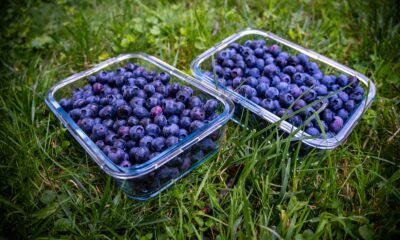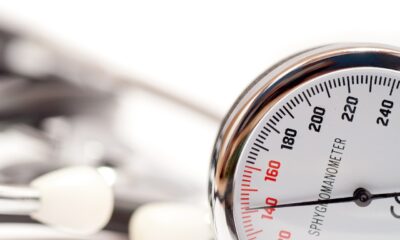Health & Wellness
Foods That Promote Liver Repair
Discover foods that support liver health and aid repair. This guide offers nutrient-rich options like leafy greens, cruciferous veggies, fruits, and more for optimal liver function.
Have you ever wondered what foods are good for liver repair? Your liver is an incredible organ with the ability to regenerate itself, but it can only do so much without your help. Consuming the right foods can greatly support this vital function, promoting liver health and aiding in the repair process. In this entire piece, you’ll discover a variety of foods that are not only delicious but also beneficial for your liver.
Understanding the Liver’s Role
Before diving deeper into the specific foods, it’s essential to grasp what your liver does. This organ is a powerhouse that performs more than 500 functions, including detoxifying the blood, producing bile for digestion, storing vitamins and minerals, and regulating metabolic processes. To keep this engine running smoothly, a diet that promotes liver repair is crucial.
Signs Your Liver Needs Help
Recognizing the signs that your liver might need some TLC can prompt you to make dietary changes faster. Symptoms like fatigue, jaundice, dark urine, pale stool, and swelling in the abdomen or legs could indicate liver issues. If you notice any of these signs, it’s wise to consult a healthcare professional and consider dietary adjustments.
Nutrient-Rich Foods for Liver Repair
Your liver needs various nutrients to repair and regenerate efficiently. Here’s a breakdown of foods loaded with essential vitamins, minerals, and antioxidants:
Leafy Greens
Leafy greens like spinach, kale, arugula, and Swiss chard are excellent for liver health. They provide chlorophyll, which helps detoxify your liver by neutralizing heavy metals, chemicals, and pesticides. Additionally, these greens are rich in fiber, helping your liver function optimally.
Cruciferous Vegetables
Think of broccoli, cauliflower, and Brussels sprouts. These veggies contain glucosinolates, which help produce enzymes that are essential for liver detoxification. Consuming these nutritious veggies can enhance your liver’s capability to return to its peak performance.
Fresh Fruits
Fruits such as apples, blueberries, and grapefruit deserve special mentions. Apples are high in pectin, aiding in the elimination of toxins from the digestive tract, thus easing your liver’s detox burden. Blueberries are filled with antioxidants that combat oxidative stress, giving your liver cells the tools to repair themselves. Grapefruit contains naringenin, which helps reduce liver inflammation and improve its metabolic function.
Nuts and Seeds
Walnuts, almonds, pumpkin seeds, and flaxseeds are nutrient-dense options that can benefit your liver. Walnuts offer omega-3 fatty acids and glutathione, both aiding in detoxification. Pumpkin seeds are rich in zinc, essential for liver tissue repair.
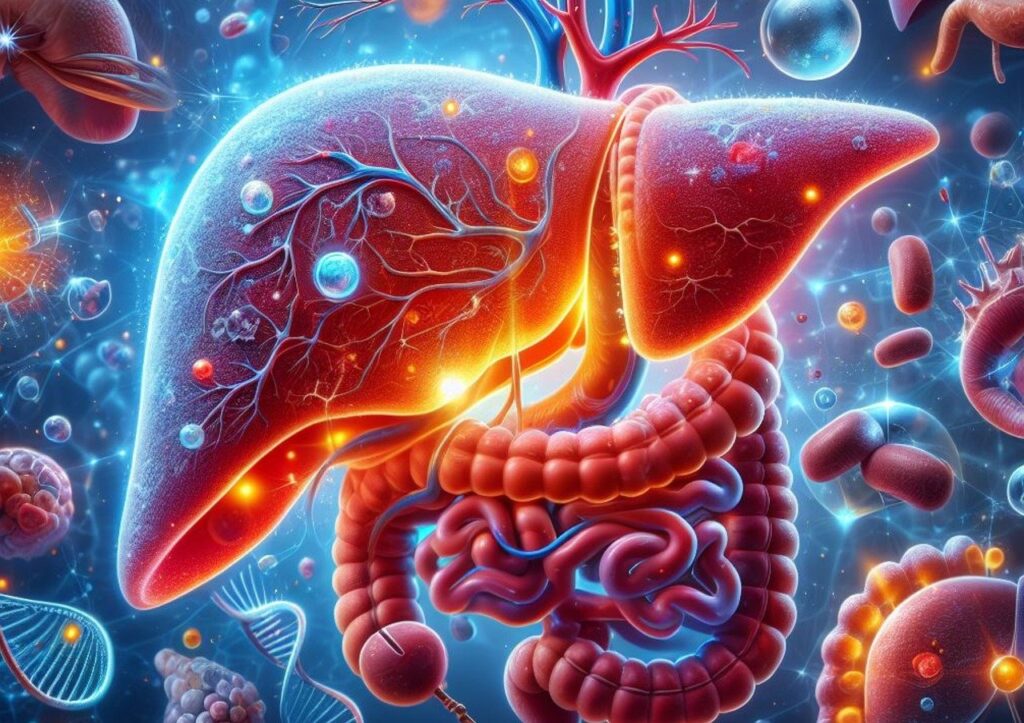
Powerful Herbs and Spices
Spices and herbs not only add flavor to your meals but also come with an array of liver-healing properties.
Turmeric
Turmeric’s active ingredient, curcumin, has potent anti-inflammatory and antioxidant properties. Curcumin helps reduce liver inflammation and increases bile production, aiding in the breakdown of fats.
Milk Thistle
Milk thistle is renowned for its liver-protective properties. Its active compound, silymarin, has been shown to promote liver cell regeneration and improve liver function while providing antioxidant benefits.
Garlic
Garlic is a powerhouse with multiple benefits, including sulfur compounds that activate liver enzymes responsible for flushing out toxins. It also contains selenium, a mineral crucial for the liver’s antioxidant function.
Fats and Oils
Understanding the role of fats in your diet is essential for liver health. Not all fats are bad; in fact, some are crucial for liver repair.
Olive Oil
Olive oil is one of the best oils you can include in your diet. Rich in healthy fats and antioxidants, it helps reduce oxidative stress and improve liver function. A small amount can reduce fatty liver symptoms by decreasing liver enzymes.
Avocados
Avocados are high in healthy fats and contain compounds that may protect your liver by effectively reducing liver damage. They’re also packed with glutathione, which aids in the detoxification process.
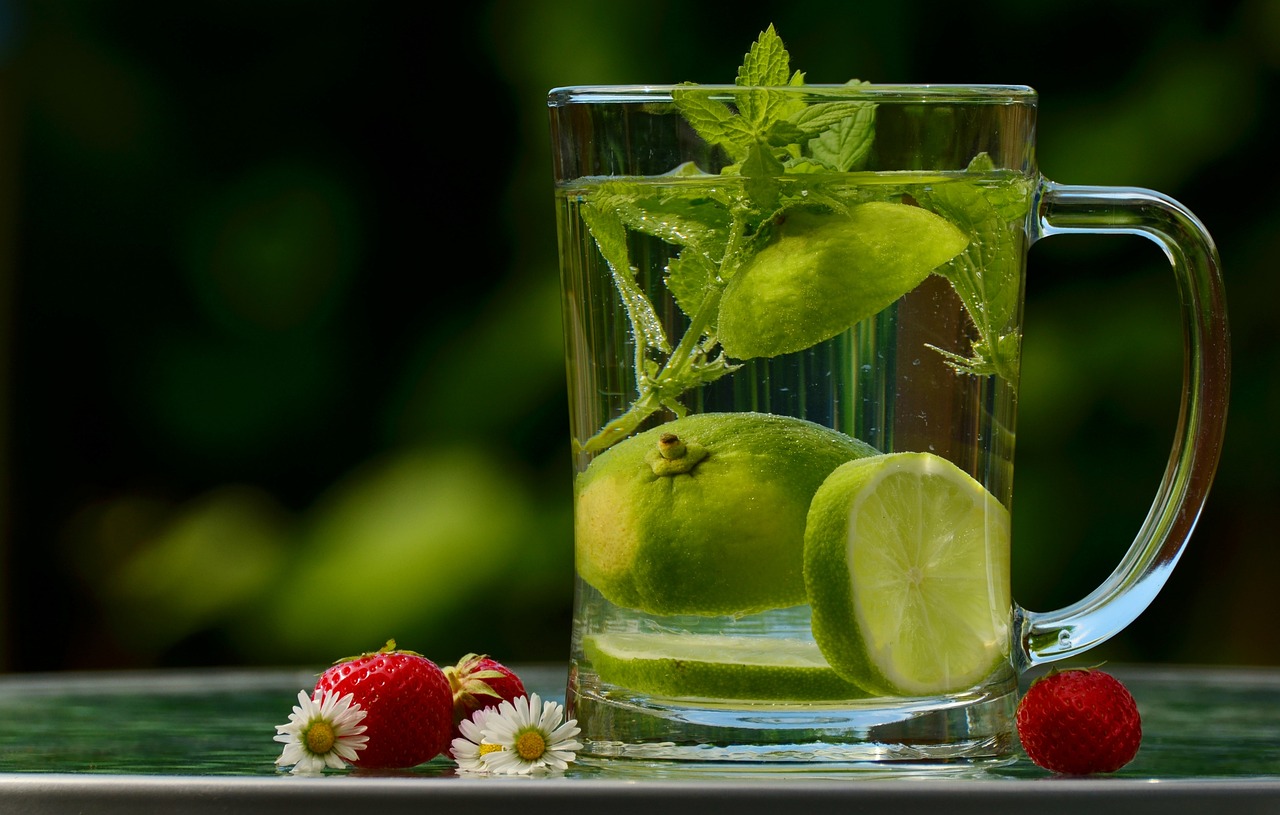
Proteins
Protein metabolism occurs in the liver, and having the right sources can make a significant difference.
Fish
Fatty fish like salmon and mackerel contain omega-3 fatty acids that reduce liver fat and inflammation. Incorporating these into your diet can help keep your liver in good shape.
Lean Meats
Lean meats such as chicken breast and turkey provide essential amino acids without burdening the liver with too much fat. These proteins are easily digestible, making them excellent for liver repair.
Whole Grains
Whole grains like quinoa, brown rice, and oats offer various nutrients and fiber that can improve liver function. Fiber helps in digestion and reduces the burden on your liver. These grains also help regulate blood sugar levels, thus preventing fatty liver disease.
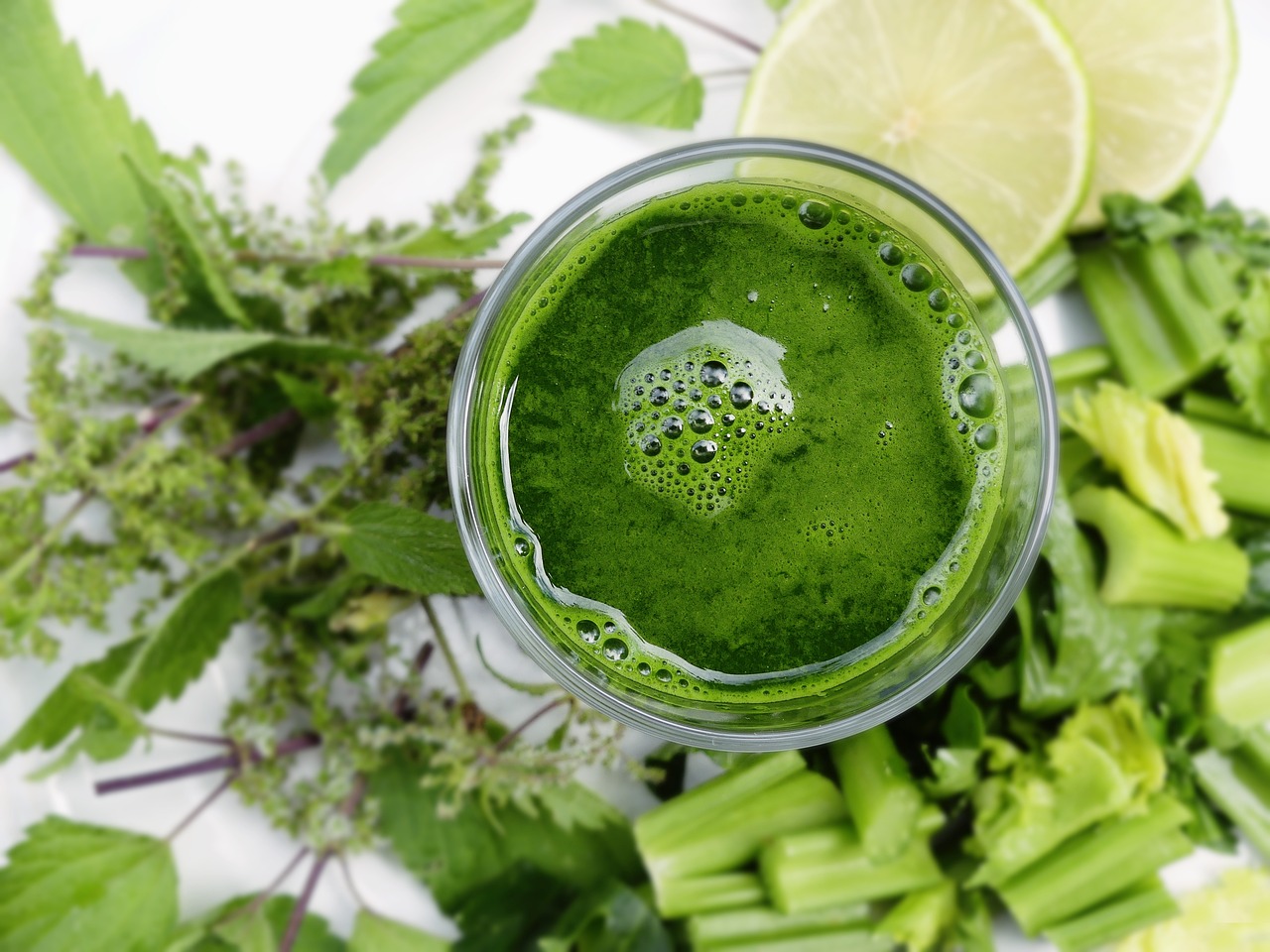
Beverages for Liver Health
What you drink is just as important as what you eat. The following beverages can support liver health and aid in its repair.
Green Tea
Green tea is rich in antioxidants called catechins, which improve liver function and reduce liver fat. Drinking it regularly can offer significant benefits.
Coffee
Good news for coffee lovers! Studies have shown that drinking coffee can lower the risk of liver disease. It’s believed that coffee reduces fat buildup and increases antioxidant levels in the liver.
Foods to Avoid for Optimal Liver Health
While adding liver-friendly foods to your diet is crucial, it’s equally important to know what to avoid. Certain foods and substances can exacerbate liver issues and stall the repair process.
Alcohol
Alcohol is one of the most harmful substances for your liver. Excessive alcohol consumption can lead to fatty liver, cirrhosis, and liver cancer. If your goal is liver repair, limiting or completely avoiding alcohol is critical.
Sugary Foods
Foods and drinks high in sugar, including candies, sodas, and baked goods, can lead to fatty liver and other issues. It’s best to minimize your sugar intake to support liver health.
Fried Foods
Fried foods are high in unhealthy fats and calories, leading to fat buildup in the liver. Reducing the consumption of these foods can significantly benefit liver health.
Processed Foods
Processed foods often contain unhealthy fats, sugars, and preservatives that can burden your liver. Opt for whole, unprocessed foods whenever possible.
Supplementary Tips for Liver Health
While diet plays a pivotal role, other lifestyle choices can also support liver health and repair.
Regular Exercise
Physical activity can help reduce liver fat and improve overall liver function. Aim for at least 30 minutes of moderate exercise several times a week.
Adequate Sleep
Your liver benefits from regular, restful sleep. Aim for 7-9 hours per night to aid liver repair processes.
Hydration
Staying hydrated helps your liver function optimally. Drinking plenty of water assists with detoxification and improves liver function.
Mindful Eating
Eating smaller, more frequent meals can reduce the burden on your liver. Avoid binge eating and focus on portion control.
Putting It All Together
Here’s a quick reference table summarizing the foods and lifestyle changes that promote liver health:
| Category | Recommendations |
|---|---|
| Leafy Greens | Spinach, Kale, Arugula, Swiss chard |
| Cruciferous Veggies | Broccoli, Cauliflower, Brussels sprouts |
| Fruits | Apples, Blueberries, Grapefruit |
| Nuts and Seeds | Walnuts, Almonds, Pumpkin Seeds, Flaxseeds |
| Herbs and Spices | Turmeric, Milk Thistle, Garlic |
| Fats and Oils | Olive Oil, Avocados |
| Proteins | Fatty Fish, Lean Meats |
| Whole Grains | Quinoa, Brown Rice, Oats |
| Beverages | Green Tea, Coffee |
| Foods to Avoid | Alcohol, Sugary Foods, Fried Foods, Processed Foods |
| Lifestyle Tips | Regular Exercise, Adequate Sleep, Hydration, Mindful Eating |
Conclusion
In the journey to liver repair, the adage “you are what you eat” holds particularly true. By incorporating these nutrient-rich foods and adopting healthier lifestyle habits, you can significantly improve your liver health. Your liver is remarkably resilient and capable of self-repair, especially when given the right tools in the form of good nutrition and a supportive lifestyle.
Remember, while these foods and tips can contribute to liver health, it’s always wise to consult a healthcare professional for personalized advice. Making informed choices today can pave the way for a healthier, more vibrant tomorrow. Your liver—and your entire body—will thank you!


